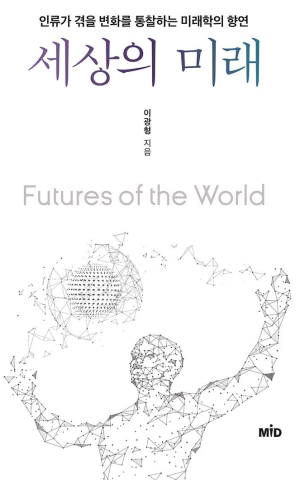세상의 미래: FutureS of the World (CS492F@KAIST in Fall 2023)
 Throughout the past 100 years, humanity has developed advanced technologies
that can, and already begins to, shape the world on a global scale.
With this enormous power comes huge responsibility:
to care, to steward, and to plan for its future!
Throughout the past 100 years, humanity has developed advanced technologies
that can, and already begins to, shape the world on a global scale.
With this enormous power comes huge responsibility:
to care, to steward, and to plan for its future!
Indeed, deliberate thinking and planning ahead makes humans arguably stand out from other intelligent species. Nevertheless, evolution has left also Homo Sapiens largely unprepared for a (1) joint, (2) large-scale, and (3) long-term endeavor – such as taking over and managing the Earth as an incredibly complex ecosystem: The Great Filter is imminent, all or nothing, too late to turn back.
In this experimental course we try to practice some basic joint, large-scale, and long-term prediction and planning.
Administration
Teacher: Martin Ziegler (use only this email address!)
TA: Abbas Mammadov (use only this email address!)
Location: online
Schedule: Mondays and Fridays, 9:00am to 10:30 KST
Language: English only (except for students discussing in KLMS)
Grading: Pass/Fail (S/U)
Instead of Exams: Small-group prediction and planning assignments with oral presentation and written essay.
Attendance: 4 absences are “free” (except for “your” assigned topic);
any additional absence requires advance approval.
(So don't waste the free ones…)
Flipped Learning: Presentations will be recorded and uploaded to
YouTube
Essays will be uploaded here.
Academic Honesty: ChatGPT doesn't have the ability to predict or see the future.
Syllabus
The first half of the semester, until (and subject of) the Midterm, will be spent conveying and discussing
- the Great Filter, and how it could end
- methods and concepts of prediction/planning/stewardship (such as Elon Musk's First Principles or tipping points)
- previous successes and failures
- sources of inspiration, ethics
- case study/example for treatment of assignments
During this first half before the Midterm,
students will (in groups of three) prepare assignments
revolving around combined prediction/planning/stewardship on the below topics.
Their considerations are then to be presented in the second half, that is after the Midterm.
(Candidate) Topics:
a) Future of Occupation and Economics
b) Future of Geo/politics and Governance
c) Future of Ecology and Sustenance
d) Future of Transportation and Travel
e) Future Society/ies and Value/Belief Systems
f) Future of Education and Entertainment
g) Future of Health and Medicine
Both lectures and presentations are recorded and published on YouTube.
Schedule
Lecture dates:
- Aug.28 + Sep.1
- Sep.4 + Sep.8
- Sep.11 + Sep.15
- Sep.18 + Sep.22
- Sep.25
+ Sep.29 Oct.2Oct.9- Dec.4
Oct.16 + Oct.20: Midterm week
Dec.11 + Dec.15: Finals week
Presentation dates:
a) Oct.6 + Oct.13 (before Midterm!)
b) Oct.23 + Oct.27
c) Oct.30 + Nov.3
d) Nov.6 + Nov.10
e) Nov.13 + Nov.17
f) Nov.20 + Nov.24
g) Nov.27 + Dec.1
Miscellaneous
Related/Cross-Promotion: CS492E "Technology for Impact" by Prof. Sukyoung Ryu
also CS492H "Trust & Safety Engineering and Practice" by Prof. Joseph Seering